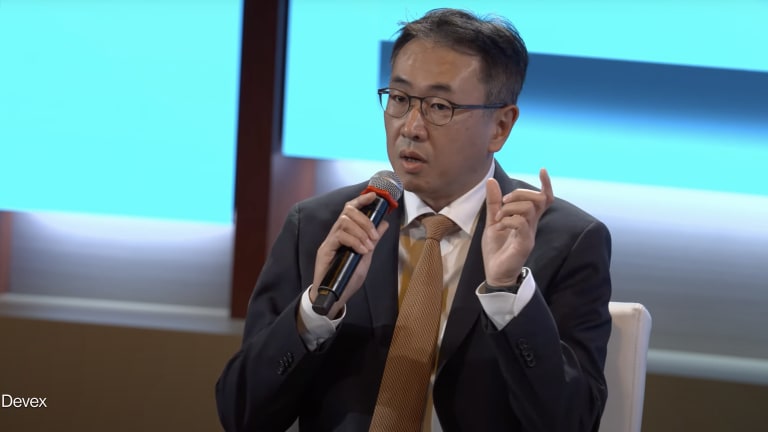
Jim Yong Kim is eager to crack down on corruption — and in a speech on Thursday, the World Bank president outlined some of his ideas on how to do it.
Rooting out corruption has been a priority since Jim Wolfensohn, the bank’s president at the time, decried the “cancer of corruption” in a 1996 speech. In his remarks on Jan. 30 before the Center for Strategic and International Studies in Washington, Kim said his predecessor’s words “resonate every bit as strongly today as when they were first uttered 16 years ago.”
Based on his speech, Kim spelled out how the bank will help address corruption during his tenure, which are all in line with the governance and anti-corruption strategy unanimously endorsed by the board in March 2012:
Robust data and analysis will inform the bank’s governance and anti-corruption practice. World Bank staff, according to Kim, needs to do better in capturing and disseminating knowledge on how to conduct governance and public sector reform, particularly in difficult contexts, such as fragile and conflict-afflicted states.
The bank may engage with countries that have a poor track record on governance. Staff will be encouraged to take risks so long as these risks are carefully thought through and managed during implementation.
Despite its willingness to work in difficult situations, the bank will continue to have zero tolerance on corruption. Case in point, according to Kim: The agency pulled the plug on financing the Padma bridge in Bangladesh last year. Kim said the decision stays until the government meets certain conditions to improve oversight and provides assurance that a complete and fair criminal probe is under way.
The bank will distill lessons from past investigations to better mitigate risks and consequently inform future business decisions.
It will improve systems that can prevent corruption. Aside from training staff and country counterparts in detecting red flags in public procurement, there will soon be software to automate this process.
Kim wants the bank to learn from successful enforcement and prevention measures, such as what Brazil is doing to turn drug-infested shantytowns into safer communities or Italy’s Redditometro approach to expose tax dodgers.
How good a job is the World Bank doing in curbing corruption? Share your thoughts by placing a comment below.
Read more development aid news online, and subscribe to The Development Newswire to receive top international development headlines from the world’s leading donors, news sources and opinion leaders — emailed to you FREE every business day.








